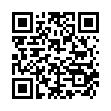|
Robotics, Automation and Control Systems
Method for determining the functional dependences of working outputs of logic combination schemes for development unidirectional errors
R. Abdullaev
Tashkent State Transport University (TSTU)
Abstract:
Structural dependences of the working outputs of logical combinational circuits were studied with the aim of subsequent identification of the type of possible errors. The types of manifested errors and the classification of the working outputs of logical combinational circuits are given. It is shown that the presence of an internal structural connection of discrete devices leads to an increase in the multiplicity of possible errors. The condition for determining the functional dependence of outputs on the manifestation of errors of the studied multiplicity is given. It is noted that out of the many types of errors, unidirectional errors can appear at the outputs of the circuits. A well-known method for determining unidirectionally dependent operating outputs of discrete device circuits is presented, which has a drawback. It is only necessary to pairwise compare each output with the rest of the whole set. For the convenience of the process of searching for such outputs, the author of the article proposed a new method for identifying unidirectionally dependent working outputs. This method differs from known methods in that it is applicable for any number of outputs, which requires much less time to search for the above outputs. It is shown that logical combinational circuits can have functional features, in which only unidirectional errors can appear at the working outputs. Therefore, a new method for identifying any number of unidirectionally independent operating outputs of combinational circuits has been proposed. It is shown that the methods proposed in the article for finding unidirectionally dependent and unidirectionally independent outputs of logical combinational circuits require simple mathematical calculations. In the Multisim, internal faults of the diagnosable circuits are simulated and all possible errors at the working outputs are fixed. According to the results of the experiments, the validity of the theoretical results obtained was also confirmed.
Keywords:
combinational circuit, errors at operating outputs of logic circuits, types of errors, structural dependence of operating outputs, unidirectionally dependent and unidirectionally independent operating outputs of combinational circuits.
Received: 08.06.2022
Citation:
R. Abdullaev, “Method for determining the functional dependences of working outputs of logic combination schemes for development unidirectional errors”, Informatics and Automation, 21:4 (2022), 786–811
Linking options:
https://www.mathnet.ru/eng/trspy1209 https://www.mathnet.ru/eng/trspy/v21/i4/p786
|

|




 Contact us:
Contact us: Terms of Use
Terms of Use
 Registration to the website
Registration to the website Logotypes
Logotypes








 Citation in format
Citation in format 